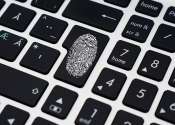A password is a secret word or string of characters that is used for authentication, to prove identity or gain access to a resource (Example: An access code is a type of password). The password must be kept secret from those not allowed access.
The use of passwords is known to be ancient. Sentries would challenge those wishing to enter an area or approaching it to supply a password or watchword. Sentries would only allow a person or group to pass if they knew the password. In modern times, user names and passwords are commonly used by people during a log in process that controls access to protected computer operating systems, mobile phones, cable TV decoders, automated teller machines (ATMs), etc. A typical computer user may require passwords for many purposes: logging in to computer accounts, retrieving e-mail from servers, accessing programs, databases, networks, web sites, and even reading the morning newspaper online.
Despite the name, there is no need for passwords to be actual words; indeed passwords which are not actual words may be harder to guess, a desirable property. Some passwords are formed from multiple words and may more accurately be called a passphrase. The term passcode is sometimes used when the secret information is purely numeric, such as the personal identification number (PIN) commonly used for ATM access. Passwords are generally short enough to be easily memorized and typed.
For the purposes of more compellingly authenticating the identity of one computing device to another, passwords have significant disadvantages (they may be stolen, spoofed, forgotten, etc.) over authentications systems relying on cryptographic protocols which are more difficult to circumvent.








